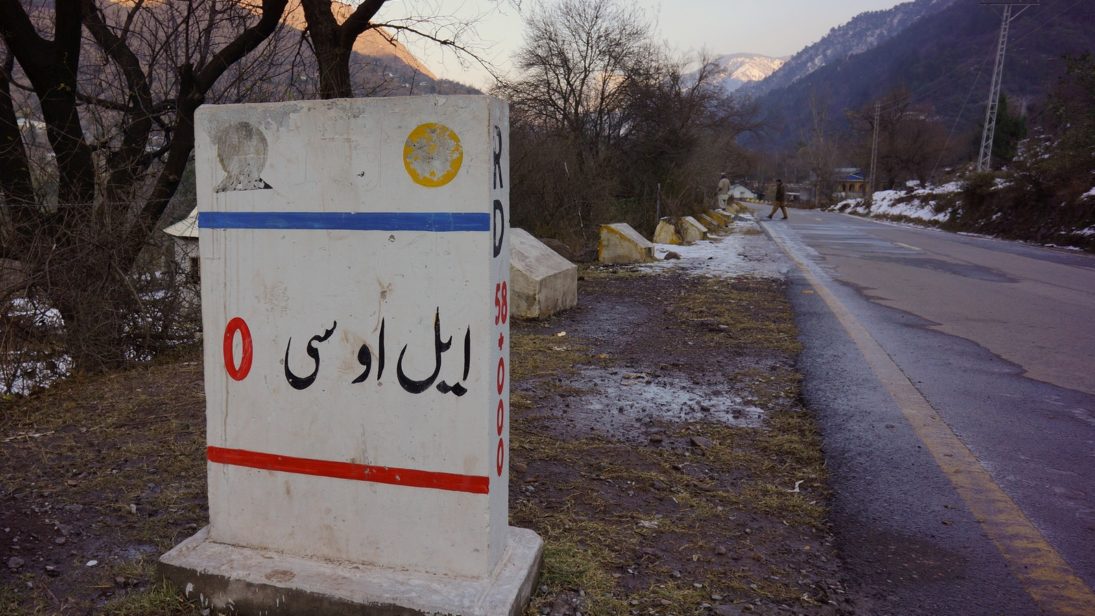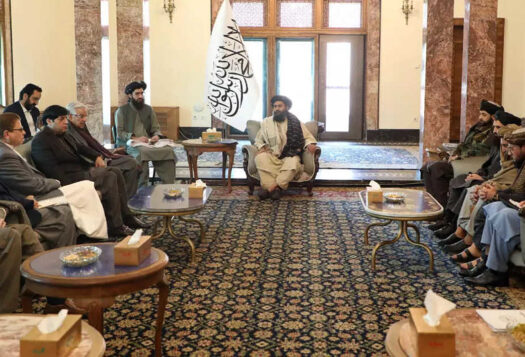
After years of continuous exchange of fire along the Line of Control (LoC) in the disputed region of Kashmir, India and Pakistan renewed their ceasefire agreement of 2003. This rare overture followed another ceasefire announced by New Delhi in its administered region of Kashmir for the month of Ramadan. It remains unclear, however, what factors triggered sudden backchannel contact and direct talks between the Director Generals of Military Operations (DGMOs) from both sides, that led to the reestablishment of the 2003 ceasefire agreement.
Both Islamabad and New Delhi seem to be have been compelled by domestic political considerations to revive the ceasefire. On the Indian side, has been struggling to maintain peace in the valley, and it can be argued that the onset of Ramadan provided an opportunity to return the situation to normalcy through active measures. By India’s calculation, peace in Jammu and Kashmir also mandates peace along the LoC, which ultimately led to the ceasefire with Pakistan. On the other hand, as Pakistan heads towards general elections next month, divided attention due to chaos at its borders would be detrimental, and this was likely a motivating factor in Pakistan’s commitment to this ceasefire.
Returning to Normalcy in Kashmir
India-administered Kashmir has been far from stable: since July 2016, India has been struggling to contain the post-Burhan Wani wave of protests in Kashmir, and the past few months have seen protests spontaneously erupt against high-handed tactics and the heavy use of force by Indian security forces against civilians. Instead of decreasing militancy opportunities over the years, the number of young men who have taken up arms against the state have risen from 66 in 2015, to 126 in 2017. As more youths turn to militancy and stone-pelting, normal life has often come to a standstill amid curfews, militant encounters, and funerals.
For New Delhi, the deteriorating situation means that restoring peace and returning to normalcy in Kashmir has become a policy priority. It was in this context that Kashmiri political leadership called on the Indian government to take active steps towards restoring regional peace, and the Bharatiya Janata Party (BJP) government responded by announcing a non-initiation of combat operations against militants in Kashmir during the holy month of Ramadan.
For New Delhi, the deteriorating situation means that restoring peace and returning to normalcy in Kashmir has become a policy priority.
Does this ceasefire mark a shift in the Indian government’s policy on Kashmir, or is it simply a “goodwill” gesture? Indian Army Chief General Bipin Rawat’s comments indicating a potential extension to this ceasefire are one indication that India may have set its sights on reforming its Kashmir policy. To this end, the Indian government has shown a willingness to engage with all political stakeholders, including the separatist All Parties Hurriyat Conference. It can therefore be argued that New Delhi is attempting to gauge the responses of said stakeholders through these ceasefires as it reshapes its Kashmir policy.
The renewed India-Pakistan ceasefire that was announced through military channels on May 30th was likely an extension of its efforts to bring normalcy to Kashmir. Such efforts to ease tensions with Pakistan were clearly on the minds of policymakers in New Delhi earlier this year. For instance, following a period of tense diplomatic relations, Pakistan Chief of Army Staff General Bajwa emphasized the need for “comprehensive dialogue” to restore peace. Indian Defense Minister Nirmala Sitharaman reacted positively this suggestion, stating that any suggestion towards peace “will be definitely taken seriously.” Furthermore, the non-initiation of combat operations in Kashmir has largely been respected, for the most part, apart from a few minor incidents. This likely built the confidence in the Indian Army that a larger ceasefire agreement with Pakistan could also be attainable as the central government attempts to restore normalcy to Kashmir.

Domestic Politics Demand Quiet Borders
While the Indian government’s desire to bring calm to J&K may be its primary motivation for the ceasefire, Pakistan has its own reasons. Islamabad is searching for political stability after the ouster of Nawaz Sharif as Prime Minister following a judicial verdict amid tense civil-military ties. The Pakistan Muslim League (Nawaz), known as PML-N, completed its governmental mandate on May 31, 2018, while elections for national and provincial assemblies will be held on July 25, 2018. During this time, all of Pakistan will be focused on domestic politics, particularly on holding fair elections in a secure environment, and on ensuring a peaceful transfer of power. Elections are taking place in a highly-charged and politically polarized environment, for which the military’s undivided attention is arguably vital.
The Pakistani army needs peace on the Indian front and low levels of violence along the LoC to focus on ensuring security for its elections. A daily exchange of fire with Indian forces and the resulting civilian casualties take up much of the military’s attention in this regard.
At the moment, Pakistan is also attempting to cement a hard-won peace over terrorist activity within Pakistan. Although some violence during political campaigns and on polling days is common in Pakistan, an election without terrorism would be an indication that stability has returned for the long haul. Elections are held on the same day across the country, which is a significant undertaking for local law enforcement and district authority. To complement the police, the government also deploys paramilitary forces and local units for maintaining law and order in coordination with local law enforcement and district authorities. For instance, on election day in 2013, 70,000 troops were deployed across the country to provide security and maintain law and order. Similar exercises will likely be repeated in the coming weeks. The Pakistan military has already expressed its readiness to engage in “election-related tasks,” if it is called upon.
In this context, the Pakistani army needs peace on the Indian front and low levels of violence along the LoC to focus on ensuring security for its elections. A daily exchange of fire with Indian forces and the resulting civilian casualties take up much of the military’s attention in this regard. Alleviating security concerns in this arena, therefore, can be said to be Pakistan’s primary motivation for restoring and upholding the ceasefire agreement with India at this time.
What Comes Next?
As Islamabad and New Delhi move to implement the 2003 ceasefire agreement in “letter and in spirit,” one must ask how long will the ceasefire hold for in the absence of a bilateral dialogue process. These two ceasefires were announced in a year in which domestic politics are becoming an increasingly complex factor in bilateral relations, as India and Pakistan are headed towards elections. Moreover, bilateral ties have been steadily worsening since the 2016 Pathankot airbase attack, which froze diplomacy between these two rivals. With increasing tensions, tit-for-tat exchanges of fire and ceasefire violations peaked in 2017, leading to the near-breakdown of the ceasefire agreement.
Pakistan has often called for formalizing the 2003 ceasefire agreement and starting comprehensive talks with India. New Delhi, however, has stated that a terror-free environment is a precondition to these talks. While this ceasefire can be seen as the first step towards thawing relations between the two nuclear-armed neighbors, the next steps to launch a political process between the two will have to come after elections determine who is governing in Pakistan and India. The challenge for India and Pakistan, in the meantime, is to uphold this ceasefire agreement until then.
***
Image 1: Usman Malik via Flickr
Image 2: Yawar Nazir via Getty


